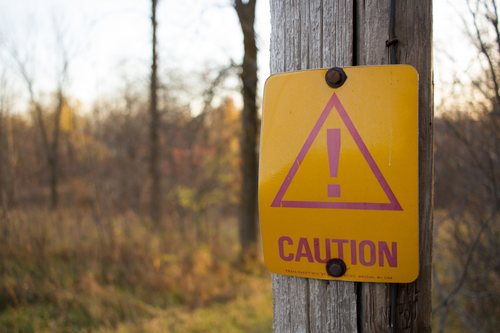Better Than a Testimony – Acts 3:11-12 – February 23 2021
/0 Comments/in Enduring Words for Troubled Times/by David GuzikWhen You Need a Good Lawyer – 1 John 2:1 – February 22 2021
/0 Comments/in Enduring Words for Troubled Times/by David GuzikZeiten der Erquickung
/0 Comments/in Wöchentliche Andacht/by David Guziko tut nun Buße und bekehrt euch, dass eure Sünden ausgetilgt werden, damit Zeiten der Erquickung vom Angesicht des Herrn kommen und er den sende, der euch zuvor verkündigt wurde, Jesus Christus (Apostelgeschichte 3,19-20)
Wie er es schon in seiner ersten Predigt getan hatte (Apostelgeschichte 2,38), ruft Petrus seine Hörer auch hier zur Buße auf. Sie sollen sich bekehren. In den vorherigen Versen sprach Petrus ihre Sünden an, doch er wollte nicht, dass sie sich einfach schlecht fühlten. Das war nicht das Ziel. Das Ziel war, sie dazu zu ermutigen, dass sie glaubten und Buße taten.

Buße bedeutet nicht, dass es einem leid tut, sondern ist ein Akt des Umdenkens. Wie in Apostelgeschichte 2 machte Petrus hier aus Buße ein Wort der Hoffnung. Er sagte ihnen, was sie falsch gemacht hatten, doch dass sie umkehren konnten um mit Gott ins Reine zu kommen.
Es war nicht nur ein Aufruf zur Buße, sondern auch zur Bekehrung: Petrus wusste um die Wichtigkeit der Umwandlung: dass Gott uns neues Leben gibt. Christ sein bedeutet nicht „eine neue Seite aufschlagen“, sondern eine neue Kreatur in Jesus Christus zu sein (2. Korinther 5,17).
Ein Autor sagte, dass sich bekehren besser übersetzt wäre mit: „kehre um zu Gott“ – oder sogar „fliehe zu Gott“. Er ist ein Zufluchtsort für uns – wir rennen zu Jesus, um Zuflucht zu finden
Petrus beschrieb dann zwei Vorteile von Buße und Bekehrung. Erstens: dass eure Sünden ausgetilgt werden. Jemandem, der Buße tut und sich bekehrt, sind seine Sünden vergeben, und die Aufzeichnungen darüber sind gelöscht.
Die Sünden sind ausgetilgt; wie Tinte von einem Dokument gelöscht wird. In der Antike enthielt Tinte noch keine Säure, die sich in das Papier „frisst“. Das Geschriebene konnte mit einem feuchten Tuch abgewischt werden. Petrus sagte damit, dass Gott unsere aufgeschriebenen Sünden einfach so wegwischt.
Der zweite Vorteil von Buße und des Umkehrens zu Gott ist: damit Zeiten der Erquickung vom Angesicht des Herrn kommen. Damit bezieht Petrus sich auf die Zeit, wenn Jesus wieder kommt und in Gerechtigkeit herrschen wird. Die ultimativen Zeiten der Erquickung werden kommen, wenn Jesus in Herrlichkeit wiederkommt. In einem anderen Sinn schickt Gott auch heute Zeiten der Erquickung für Seine Kinder. Wir sollten dafür beten und daran glauben, dass Gott Zeiten der Erweckung und der Erquickung schickt.
Jeder vernünftige Mensch wünscht sich, dass seine Sünden ausgetilgt werden. Jede müde Person wünscht sich Zeiten der Erquickung, die vom Angesicht des Herrn kommt. Wenn du Buße getan und dich bekehrt hast, dann bitte Gott, das du das tatsächlich erfahren darfst, in dem Wissen, dass dies das Geburtsrecht eines jeden Kind Gottes ist. Rede heute mit Gott darüber.
Tiempos de refrigerio
/0 Comments/in Devocional Semanal/by David GuzikAsí que, arrepentíos y convertíos, para que sean borrados vuestros pecados; para que vengan de la presencia del Señor tiempos de refrigerio, y él envíe a Jesucristo, que os fue antes anunciado (Hechos 3:19-20)
Como hizo en su primer sermón (Hechos 2:38), Pedro pidió a sus oyentes que se arrepintieran. Les dijo que cambiaran sus pensamientos y acciones. En los versículos anteriores, Pedro les habló directamente sobre su pecado, pero no quería solo hacerlos sentir mal. Ese no era su objetivo. El objetivo era animarlos a arrepentirse y creer.

Es bueno recordar que el arrepentimiento no describe el estar arrepentido, sino el acto de cambiar de dirección. Y como la usó antes en Hechos 2, Pedro aquí también hizo del arrepentimiento una palabra de esperanza. Les dijo que habían hecho mal; pero que podían cambiar de dirección y estar bien con Dios.
No era solo un llamado a que se arrepintieran, sino también a que se convirtieran: Pedro conocía la necesidad de la conversión, de la obra de Dios de darnos nueva vida. Ser cristiano no es “hacer borrón y cuenta nueva”, es ser una nueva creación en Cristo Jesús (2 Corintios 5:17).
Un escritor dice que convertirse se traduce mejor como “volverse a Dios” o, mejor aún, “huir a Dios”. Esto se conecta con la imagen de las ciudades de refugio en el Antiguo Testamento: corremos hacia Jesús como nuestro lugar de refugio.
Pedro pasó a describir dos beneficios del arrepentimiento y la conversión. Primero, para que sean borrados vuestros pecados: Este fue el primer beneficio del arrepentimiento que Pedro les presentó. Al que se arrepiente y se convierte se le perdonan sus pecados, y el registro mismo es borrado.
Estos pecados son borrados. Esto lleva la idea de limpiar la tinta de un documento. La tinta en el mundo antiguo no tenía contenido de ácido y no “mordía” el papel. Casi siempre se podía limpiar con un paño húmedo. Pedro dijo que Dios borraría nuestro registro de pecado de esta manera.
El segundo beneficio de arrepentirse y volverse a Dios era que vengan de la presencia del Señor tiempos de refrigerio. Al hablar de “tiempos de refrigerio”, Pedro se refería al tiempo en que Jesús regresará y gobernará con justicia. Los tiempos de refrigerio definitivos se cumplirán cuando Jesucristo regrese en gloria. En un sentido menor (aunque glorioso), Dios envía tiempos de refrigerio a su pueblo hoy. Debemos orar a Dios por esto y creerle que enviará temporadas de avivamiento y refrigerio.
Toda persona sensata quiere que sus pecados sean borrados. Toda persona cansada quiere que Dios le envíetiempos de refrigerio que vengan de la presencia del Señor. Si usted se ha arrepentido y se ha convertido, pídale a Dios la verdadera posesión experiencial de estos, con la confianza de que este es su derecho de nacimiento como hijo de Dios. Usted puede hablar con Dios sobre esto hoy.
Haz clic aquí para el comentario de David de Hechos 3
Fair Warning
/0 Comments/in Weekly Devotional/by David GuzikFor Moses truly said to the fathers, “The Lord your God will raise up for you a Prophet like me from your brethren. Him you shall hear in all things, whatever He says to you. And it shall be that every soul who will not hear that Prophet shall be utterly destroyed from among the people.” (Acts 3:22-23)
An excited crowd gathered on the temple mount in Jerusalem, because a familiar beggar was miraculously healed of his paralyzed legs. As the formerly lame man walked, jumped, and praised God, the people ran to see the reason for the excitement. Peter took this opportunity to preach to the crowd, and his sermon had so many remarkable parts:

Peter got their attention: Men of Israel, why do you marvel at this? (Acts 3:12)
Peter gave the glory to God: Why look so intently at us, as though by our own power or godliness we had made this man walk? (Acts 3:12)
Peter preached Jesus: His Servant Jesus (Acts 3:13)
Peter spoke to them of their sin: whom you delivered up and denied (Acts 3:13)
Peter preached Christ crucified: and killed the Prince of Life (Acts 3:14)
Peter preached the resurrection: whom God raised from the dead (Acts 3:15)
Peter preached the continuing work of Jesus: His name…has made this man strong (Acts 3:16)
Peter preached the fulfillment of Old Testament prophecy in Jesus: those things which God foretold by the mouth of all His prophets, that the Christ would suffer (Acts 3:18)
Peter preached repentance: Repent therefore and be converted (Acts 3:19)
After all that, Peter then pointed to a specific prophecy, spoken by Moses in Deuteronomy 18:15 and 18:18-19. The prophecy was that God would send a Prophet like Moses – and if they did not hear that Prophet, they would be utterly destroyed from among the people.
It was important for them to hear that the Prophet predicted by Moses was in fact the Messiah, fulfilled in Jesus Christ. Some in that day thought that it might be someone different from the Messiah, but Peter made it clear that they are one and the same.
Peter also gave them the strong warning: every soul who will not hear that Prophet shall be utterly destroyed. I suppose that some people would accuse Peter of being a “hellfire and damnation” preacher. Peter told them, “If you reject the Messiah Jesus, the Prophet Moses predicted, there is no eternal hope for you, you shall be utterly destroyed.”
In one sense, this was fulfilled in less than 40 years when Jerusalem and the temple were destroyed. But these inspired words from Peter did not primarily concern building or cities, but every soul.
It is an unpopular and sobering thought but love for every soul compels us to say it: all who reject Jesus, who will not hear Him, will be destroyed, and utterly so. Peter loved his hearers enough to give fair warning of an unpleasant truth. May God give us the same love and boldness.





